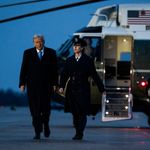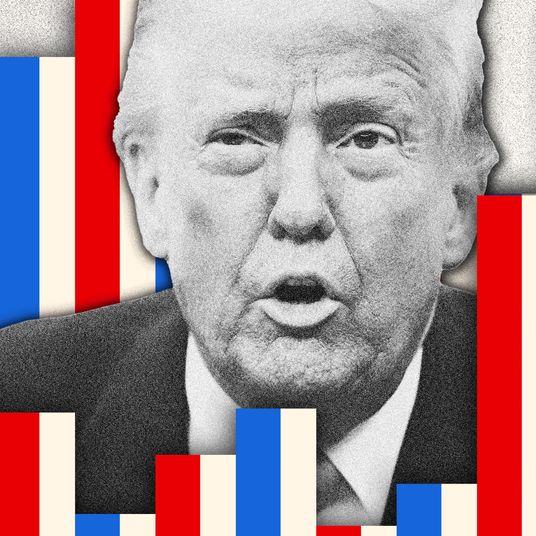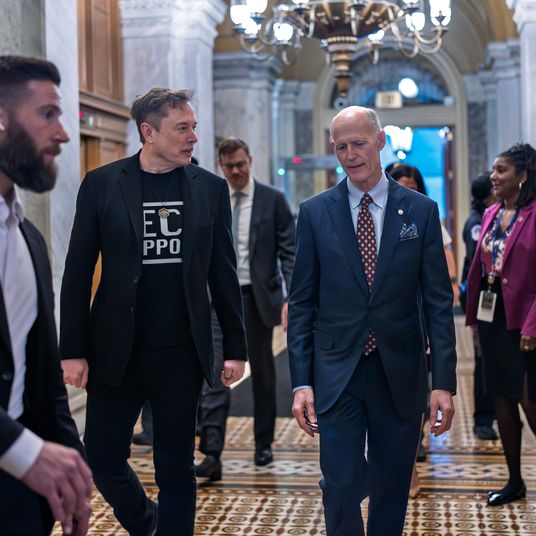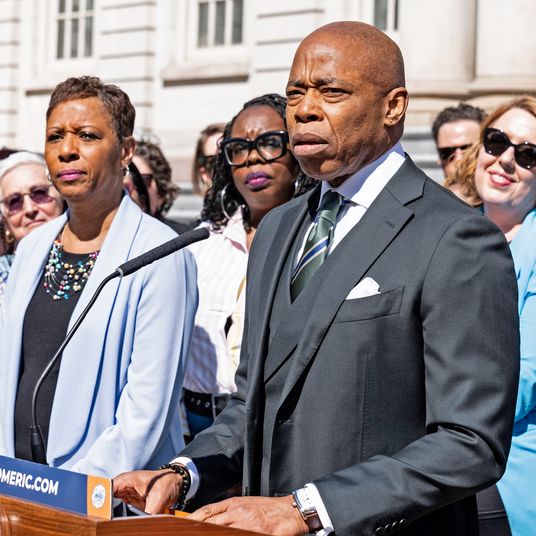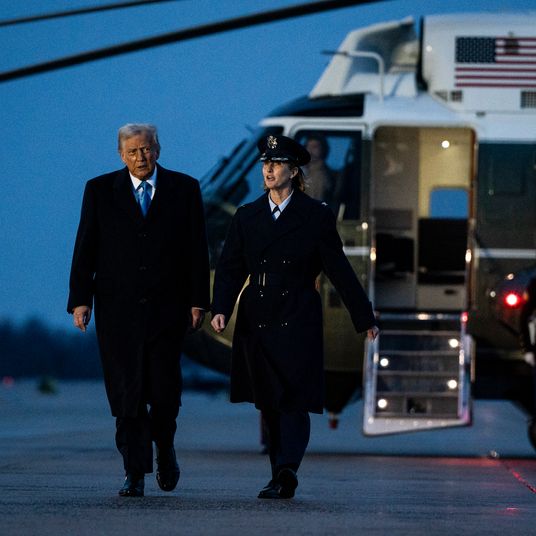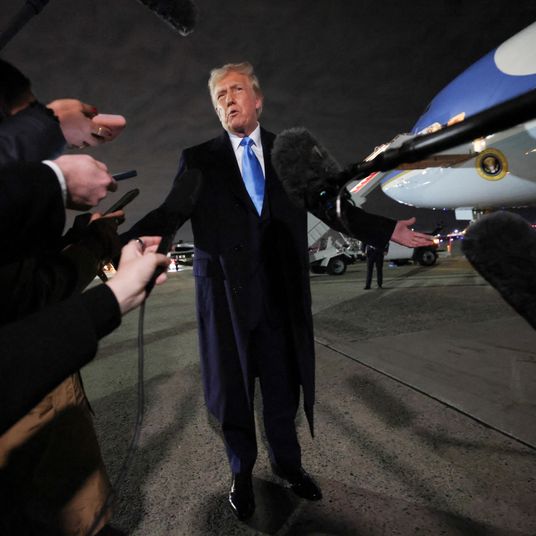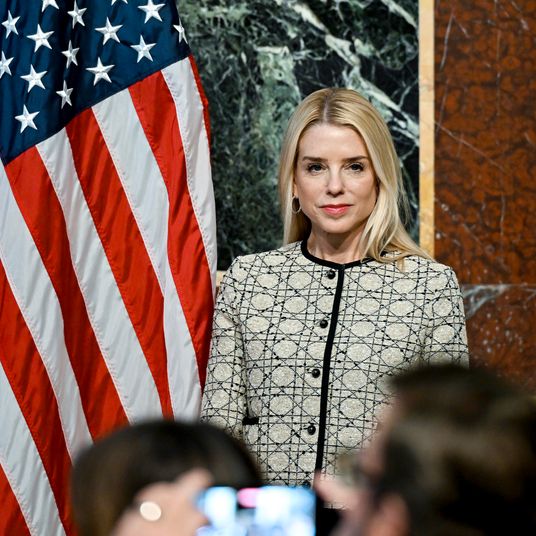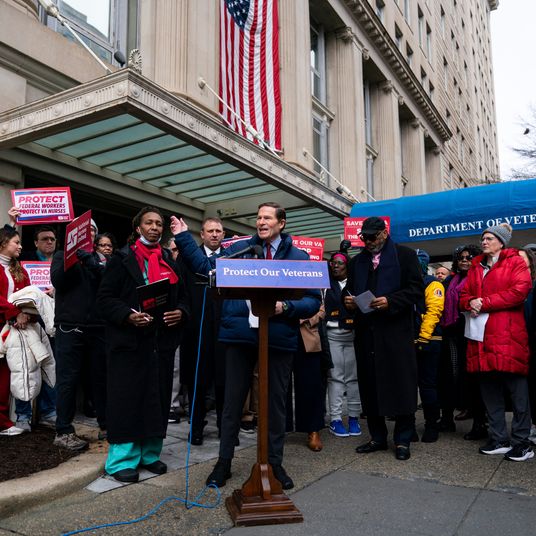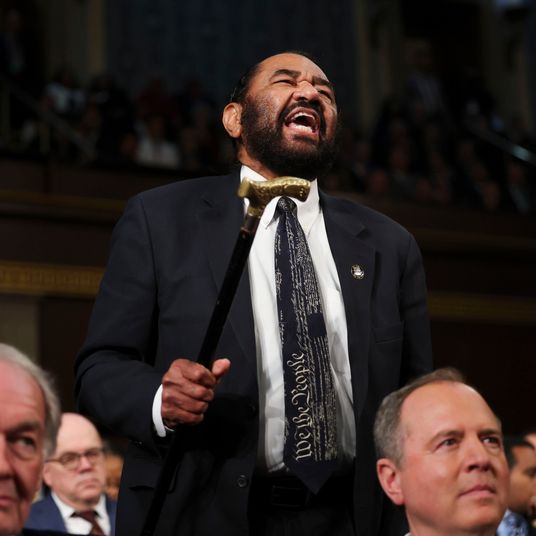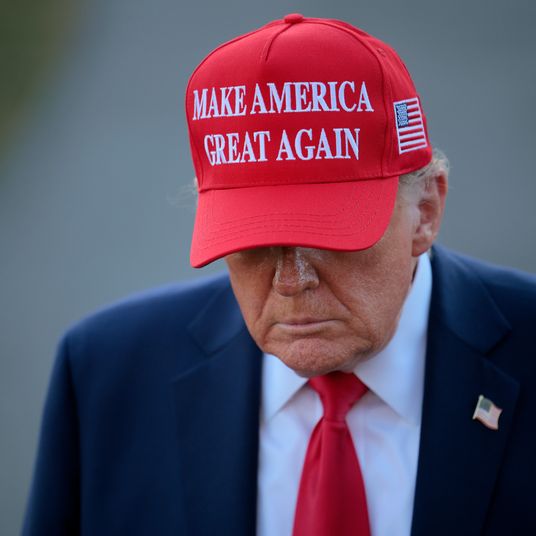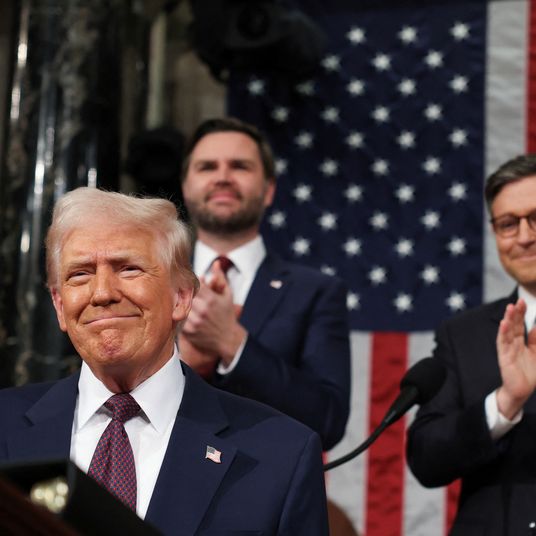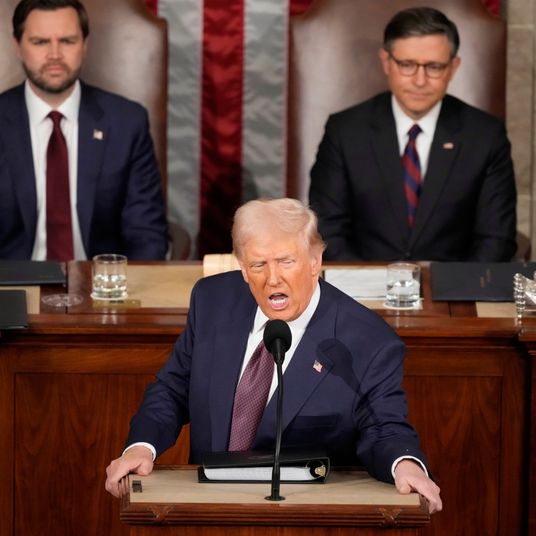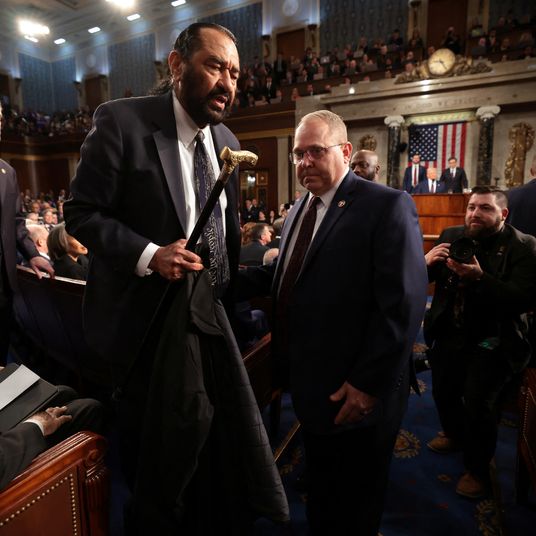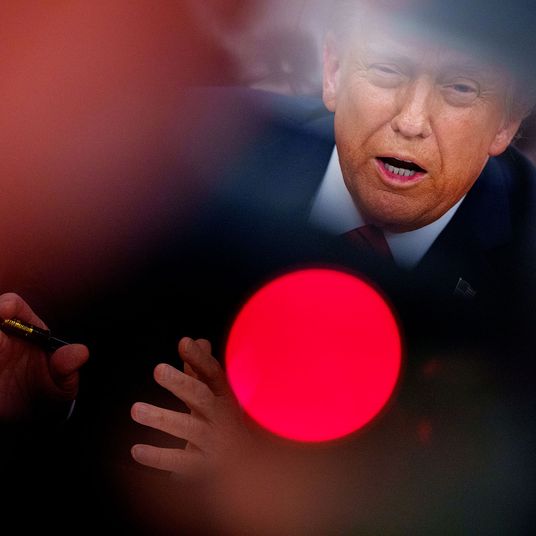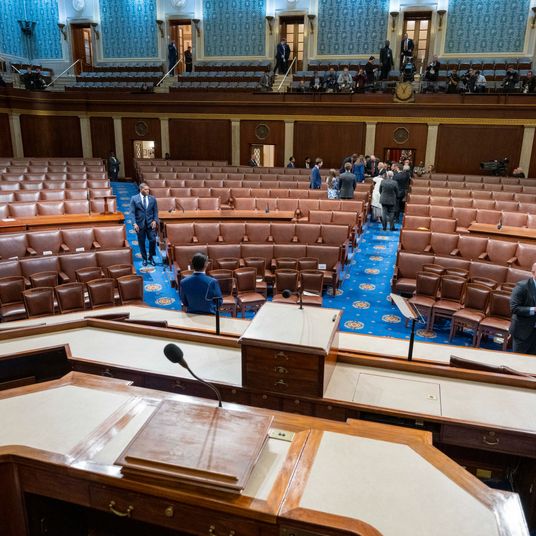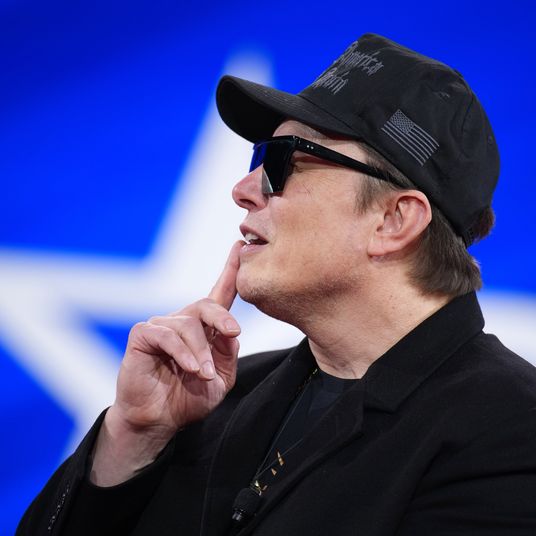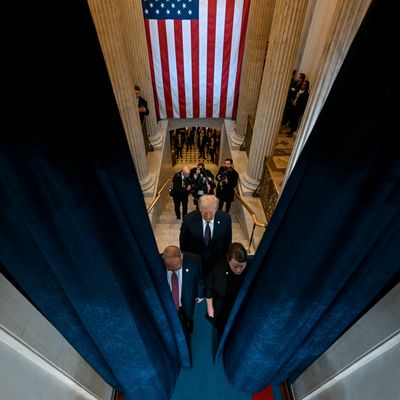
It can be difficult to comprehend Donald Trump in his totality — how he has both bent history to his will and failed to do the kind of damage the left always imagines is imminent. He has dominated our politics now for almost a full decade, casting a shadow akin to that of Ronald Reagan or Richard Nixon. His inauguration makes this plain: Again and again, commentators uttered the word comeback to describe what they were witnessing, a man indicted four times — and nearly assassinated — living in the White House again. And he arrives with a far stronger hand than eight years ago, the skeptics purged from the GOP and the sycophants ready to reign. Mike Pence hovered in the Capitol as the ghost of MAGA past, reminding J.D. Vance of all he should never be, not if he wants to be blessed in the new Republican pantheon. Vance will say yes to anything and everything because he wants to be president one day. All other Republicans filling out Trump’s administration have been vetted for their only genuine qualification, loyalty, and a vanishing few can be expected to defy the president at all.
Trump’s secured the oligarchy, too. In his first term, they weren’t sure what to make of him. How capitalist was the new president? What did this so-called populism really mean? Would MAGA sully their brand equity? Hadn’t the Democrats cozied up to Big Tech enough? The inauguration, jammed into the Capitol Rotunda to dodge the horrific cold outside, made room for the men who collectively dictate so much of his daily life in America and the world: Jeff Bezos, Mark Zuckerberg, Elon Musk, Tim Cook, and Sundar Pichai. Among them, there’s enough wealth to buy and destroy nations, strangle the internet in its entirety, and dictate how we communicate and what we shop for. For once, they were all sans their usual costumes, fitted awkwardly into dark suits, their eyes alight with opportunity. This is an administration, they no doubt believe, that is going to do business. They want the government to stop trying to regulate them. They want to see the Biden-era antitrust regime immolated. Whatever influence corporate America has enjoyed over the last 30 years — and it’s a titanic amount — it’s not enough for the titans of the tech industry. They crave total deference, and they just might get it.
Trump is already signing a flurry of executive orders. Some are significant, some are symbolic, and some, like the attempt to end birthright citizenship, could die in the courts. Day one of the Trump restoration is emblematic of what Trump was in his first four years and what he will probably be until he’s dead. There is substance in his rage, and laws are going to change in this country. But the tangible policy legacy of Trump, if set to swell in these next few years, will always be fainter than his reputation suggests.
Trump 45 slashed the corporate tax rate, gutted environmental regulations, and appointed many right-wing judges, including three Supreme Court justices. The latter is the most significant and led to the overturning of Roe v. Wade, the absurd ruling on presidential immunity, and the striking down of Chevron deference. Filling judicial vacancies, though, was a task outsourced to the Federalist Society and Mitch McConnell. Had Ted Cruz, the 2016 runner-up, become president, the outcome would have been no different. Trump quietly failed in his quest to repeal the Affordable Care Act, and now Republicans hardly talk of it at all. If there is a model for quasi-fascism in America — or at least statist dominance that rewrote the compact between the federal government and private citizens — it was the second Bush administration. Trump left behind nothing like the Patriot Act, and it’s doubtful he will this time around.
Trump’s threat should not be undersold; it should merely be understood in context. The erosion of democratic norms matter, and it’s hard to know what a Justice Department under the yoke of a proud loyalist like Pam Bondi will do. Trump is in possession of all the authoritarian impulses his critics attribute to him, and there’s little doubt he fantasizes, at the minimum, of parading around Washington like a modern-day Mussolini. The better question to ask is if he’ll actually get there: Can he, the former reality-television star with an attention span much shorter than his tie, subdue the American republic? Unlikely. The nation is too big for him. Congress, in particular, is a problem. Somehow, he won this sweeping mandate while his party barely carried the House. Mike Johnson, the Republican Speaker, will be lucky to drag a budget reconciliation bill across the finish line. The Senate, for Trump, offers more opportunity, but only barely. Fifty-three Republican senators sounds great until MAGA begins to understand that two of them, Lisa Murkowski of Alaska and Susan Collins of Maine, are hostile to their movement, and a third, John Curtis of Utah, appears cut from Mitt Romney’s cloth. Toss in Thom Tillis, a North Carolina Republican who will be battling for his seat in a purple state in 2026, and suddenly Trump’s team may start to sweat the whip count on anything beyond his safest Cabinet nominees.
This may only bother Trump so much because legislation, like governing, is a bit of a bore for him. He revels in the pomp of the presidency, the world-historical spectacle and what it might mean for humiliating his enemies. Americans should be thankful he’s got little of the Bush regime’s foreign policy ambition in him. If an erratic, bilious B-list entertainer reaches the White House, better he be an isolationist and American Firster than a Cheney acolyte who wants to go bust some skulls across the ocean. It can be debated whether Trump deserves a great amount of credit for the Israel-Hamas cease-fire, but at least his incoming administration took an interest. Trump, for now, isn’t keen on war. He’d rather howl about his tariffs, his border, and the glory of Greenland. Better to have Trump obsessing over the least densely populated region in the world than something genuinely destabilizing.
If Trump’s weakness is policy, his strength remains politics. The realignment of the parties is quite real and potentially lasting. His opposition to immigration and free-trade deals attracted a working-class vote that the likes of Romney and John McCain could never corral. His Republican Party is far more fiscally populist than what came before. His Labor secretary is pro-labor, and his Federal Trade Commission chair is considered friendly to the merger-skeptical approach that Biden’s Lina Khan engineered over the last four years. If cryptocurrency will be fully deregulated, potentially fueling a new speculative bubble and leading us down the road to economic ruin, there’s reason to believe some populism will flake into the new administration. As always, better to see what Trump does than listen to whatever he spews out.


